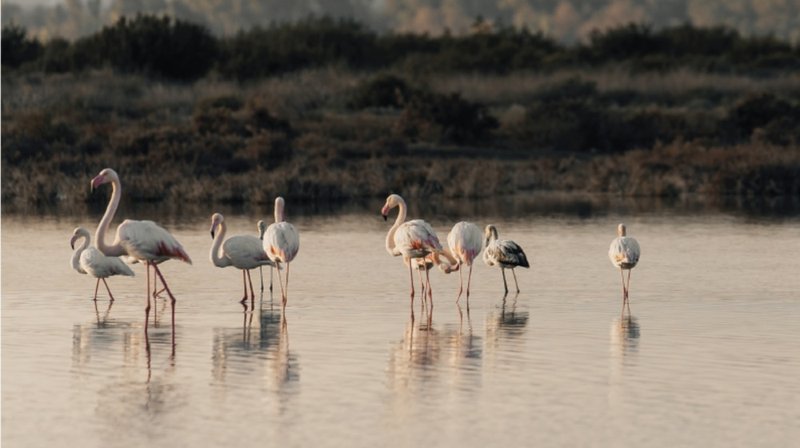Limassol Greens' plans to manage water and protect the environment
07:02 - 17 April 2025

On an island where water management is a real issue, one would reasonably want to know the steps the Limassol Greens project’s management is taking in terms of its water management. There is also the issue of protecting the surrounding natural environment, and ensuring energy efficiency.
During a recent press tour of the project, specific measures were listed.
Water recycling and storm water management
Limassol Greens’ Golf and Landscape design irrigation utilises a combination of treated wastewater and harvested storm water. The golf course and landscaped areas are designed with irrigation systems that are tailored to deliver the recycled water efficiently to the plants. Benefits of using treated wastewater for irrigation include, conservation of potable water, cost savings and environmental benefits.
The project’s storm water harvesting system consists of culverts, channels, and drains to capture rainwater. Before the collected storm water is redirected to the golf lakes and used as needed, it is treated to remove pollutants and debris. This involves oil-water separators, settling ponds, and filtration systems. This water can be used to replenish the lakes and maintain their water levels.

Ensuring energy efficiency
To ensure energy efficiency, the project will include renewable energy sources (RES), while the residential part will consist of energy efficient buildings with power saving appliances. Features include improved insulation, energy-efficient windows, and energy-efficient appliances, as well as installation of solar and photovoltaic panels on all buildings, clubhouse, maintenance building, and other suitable areas to harness solar energy.

Aquatic biology and management of lakes
Managing lakes on golf courses involves understanding aquatic biology and implementing effective strategies to maintain water quality, aesthetics, and ecological balance, the company says. As such, it plans to install aeration systems to enhance oxygen levels in the lakes, which supports fish and other aquatic life. Aeration can also help prevent the stratification of water, improving overall water quality. It also intends to implement measures to control excessive algae growth, such as nutrient management and the use of algaecides.
The water quality, according to Limassol Greens, will be regularly tested and monitored by quality parameters such as pH, dissolved oxygen, nutrient levels (nitrogen and phosphorus), and turbidity. It also plans to maintain a balanced fish population to control unwanted species and promote a healthy ecosystem; identify and monitor aquatic plants in the lake (some plants may be beneficial for water quality), and prevent soil erosion by stabilising the lake’s shoreline with vegetation or other erosion control measures.

Pest management
In Limassol Greens where maintaining pristine turf and landscaping is crucial, Integrated Pest Management (IPM) plays a vital role in minimising the use of synthetics pesticides. And so, the golf course will be regularly monitored for pest populations, disease outbreaks and weed infestations with various techniques such as visual inspections, traps and scouting to identify problems accurately. It also claims that cultural practices and mechanical control like proper irrigation, mowing, aeration, pruning, and fertilisation will help maintain healthy turf grass and plants, which can resist pests and disease more effectively. Beyond this, use of biological control agents, also known as biopesticides, will be used, while chemical control by using synthetics pesticides will be used only when necessary and as a last resort.

Waste management
The project shall establish recycling programs with waste collection points for different type of waste, including paper, plastic, glass, metal and hazardous materials like batteries and chemicals. Clearly labelled bins or containers for each type of waste shall be provided to facilitate easy segregation by golfers, residents, staff, and visitors.
composting facilities will be established on-site to process organic waste generated from golf and landscape maintenance and food waste from Clubhouse restaurants and commercial area and produce nutrient-rich compost or use in landscaping and turf management. It also plans to encourage the use of reusable items among golfers, staff, and visitors, as well as adopt environmentally responsible purchasing policies that prioritise the procurement of eco-friendly products, materials, and equipment recycled content.

